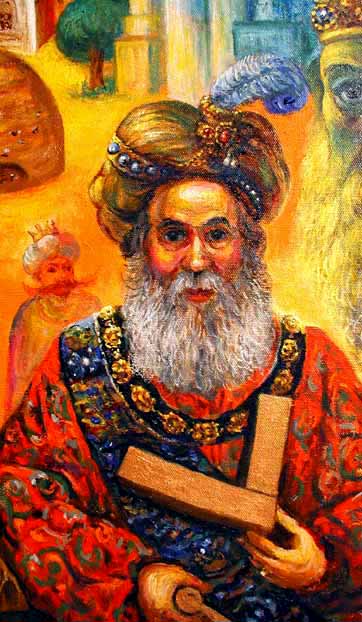Measure your desires by your fortune and condition, not your fortunes by your desires: be governed by your needs, not by your fancy; by nature, not by evil customs and ambitious principles. It is no evil to be poor, but to be vicious and impatient. Is that beast better, that hath two or three mountains to graze on, than the little bee that feeds on dew or manna, and lives upon what falls every morning from the store-houses of Heaven, clouds and Providence?
There are some instances of fortune and a fair condition that cannot stand with some others; but if you desire this, you must lose that, and unless you be content with one, you lose the comfort of both. If you covet learning, you must have leisure and a retired life; if honors of State and political distinctions, you must “Be ever abroad in public, and get experience, and do all men’s business, and keep all company, and have no leisure at all. If you will be rich, you must be frugal; if you will be popular, you must
p. 147
be bountiful; if a philosopher, you must despise riches. If you would be famous as Epaminondas, accept also his poverty, for it added lustre to his person, and envy to his fortune, and his virtue without it could not have been so excellent. If you would have the reputation of a martyr, you must needs accept his persecution; if of a benefactor of the world, the world’s injustice; if truly great, you must expect to see the mob prefer lesser men to yourself.
God esteems it one of His glories, that He brings good out of evil; and therefore it were but reason we should trust Him to govern His own world as He pleases; and that we should patiently wait until the change cometh, or the reason is discovered.
A Mason’s contentedness must by no means be a mere contented selfishness, like his who, comfortable himself, is indifferent to the discomfort of others. There will always be in this world wrongs to forgive, suffering to alleviate, sorrow asking for sympathy, necessities and destitution to relieve, and ample occasion for the exercise of active charity and beneficence. And he who sits unconcerned amidst it all, perhaps enjoying his own comforts and luxuries the more, by contrasting them with the hungry and ragged destitution and shivering misery of his fellows, is not contented, but selfish and unfeeling.
It is the saddest of all sights upon this earth, that of a man lazy and luxurious, or hard and penurious, to whom want appeals in vain, and suffering cries in an unknown tongue. The man whose hasty anger hurries him into violence and crime is not half so unworthy to live. He is the faithless steward, that embezzles what God has given him in trust for the impoverished and suffering among his brethren. The true Mason must be and must have a right to be content with himself; and he can be so only when he lives not for himself alone, but for others also, who need his assistance and have a claim upon his sympathy.
“Charity is the great channel,” it has been well said, “through which God passes all His mercy upon mankind. For we receive absolution of our sins in proportion to our forgiving our brother. This is the rule of our hopes and the measure of our desire in this world; and on the day of death and judgment, the great sentence upon mankind shall be transacted according to our alms, which is the other part of charity. God himself is love; and every degree of charity that dwells in us is the participation of the Divine nature.”
p. 148
These principles Masonry reduces to practice. By them it expects you to be hereafter guided and governed. It especially inculcates them upon him who employs the labor of others, forbidding him to discharge them, when to want employment is to starve; or to contract for the labor of man or woman at so low a price that by over-exertion they must sell him their blood and life at the same time with the labor of their hands.

Moe is the founder of GnosticWarrior.com. He is a father, husband, author, martial arts black belt, and an expert in Gnosticism, the occult, and esotericism.

![How when King Penda was slain, the province of the Mercians received the faith of Christ, and Oswy gave possessions and territories to God, for building monasteries, as a thank offering for the victory obtained [655 A.D.] | Book 3 | Chapter 24 How when King Penda was slain, the province of the Mercians received the faith of Christ, and Oswy gave possessions and territories to God, for building monasteries, as a thank offering for the victory obtained [655 A.D.] | Book 3 | Chapter 24](https://www.gnosticwarrior.com/wp-content/plugins/contextual-related-posts/default.png)





